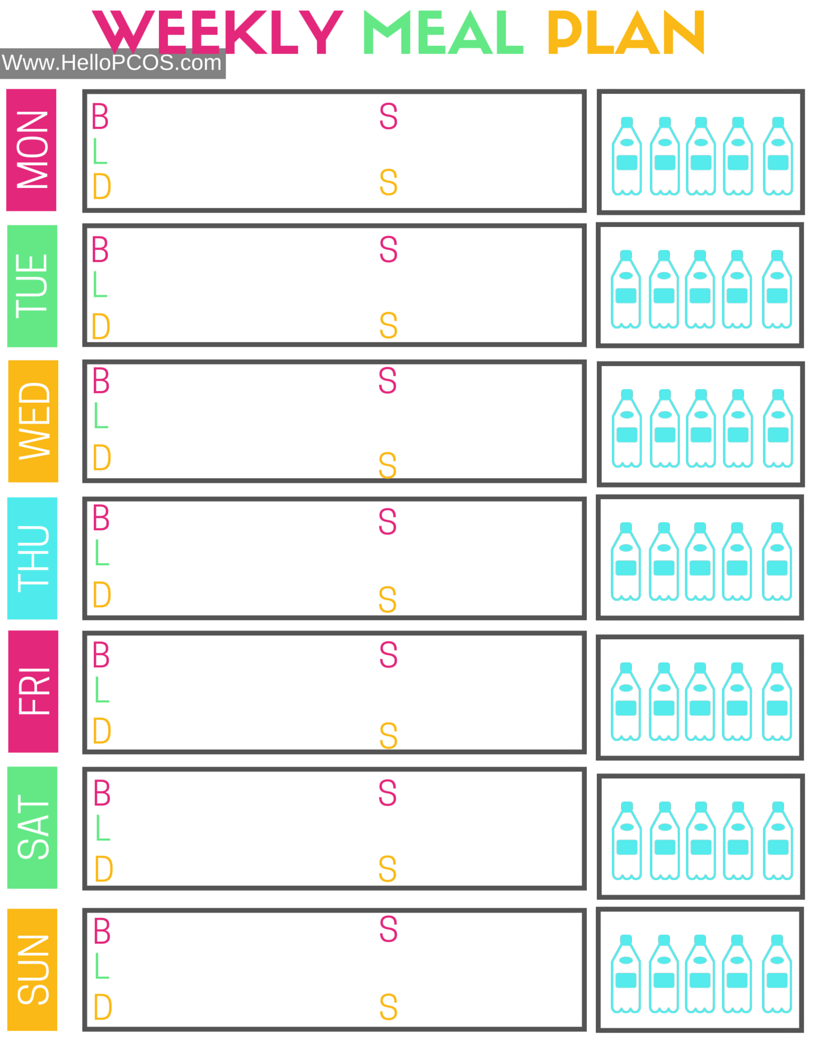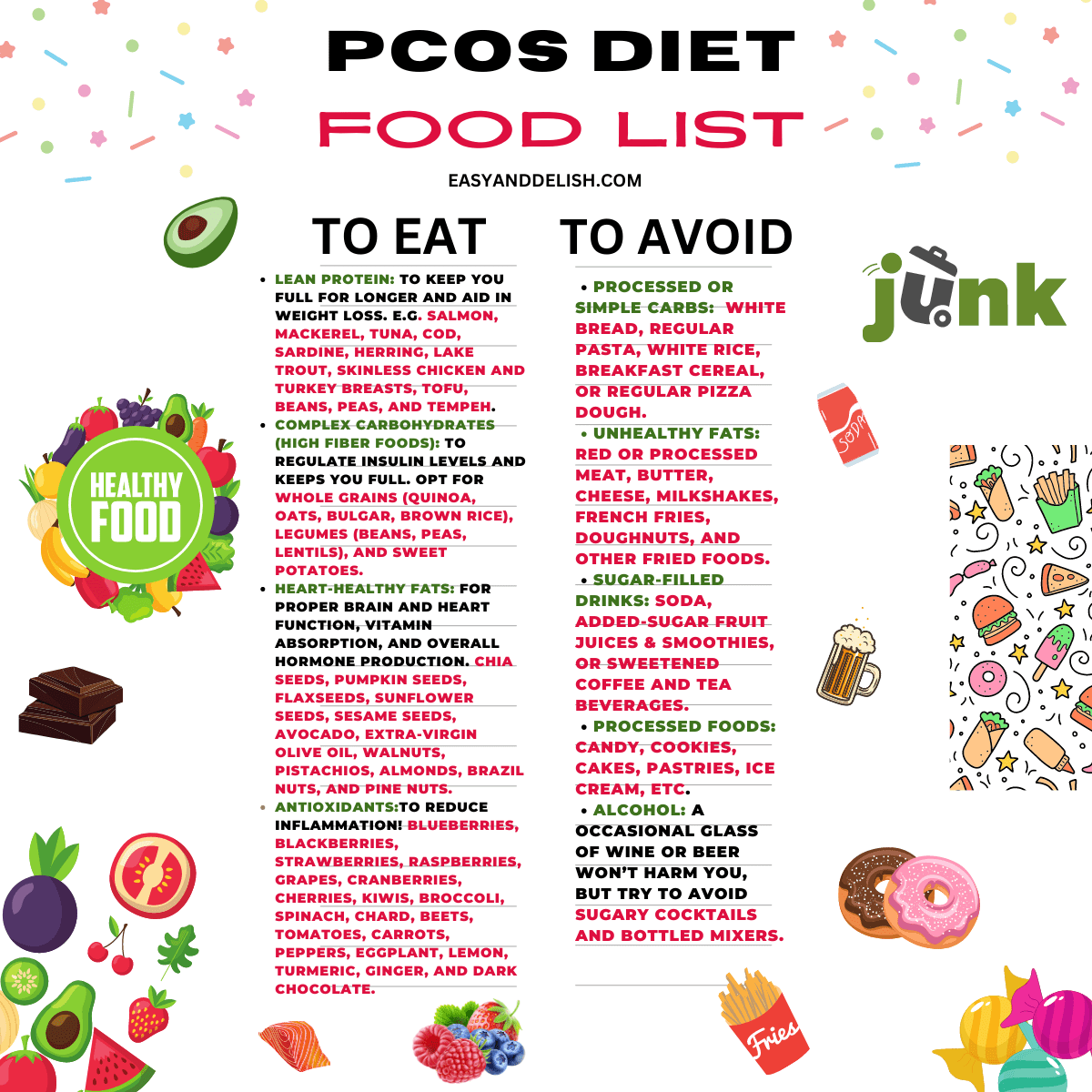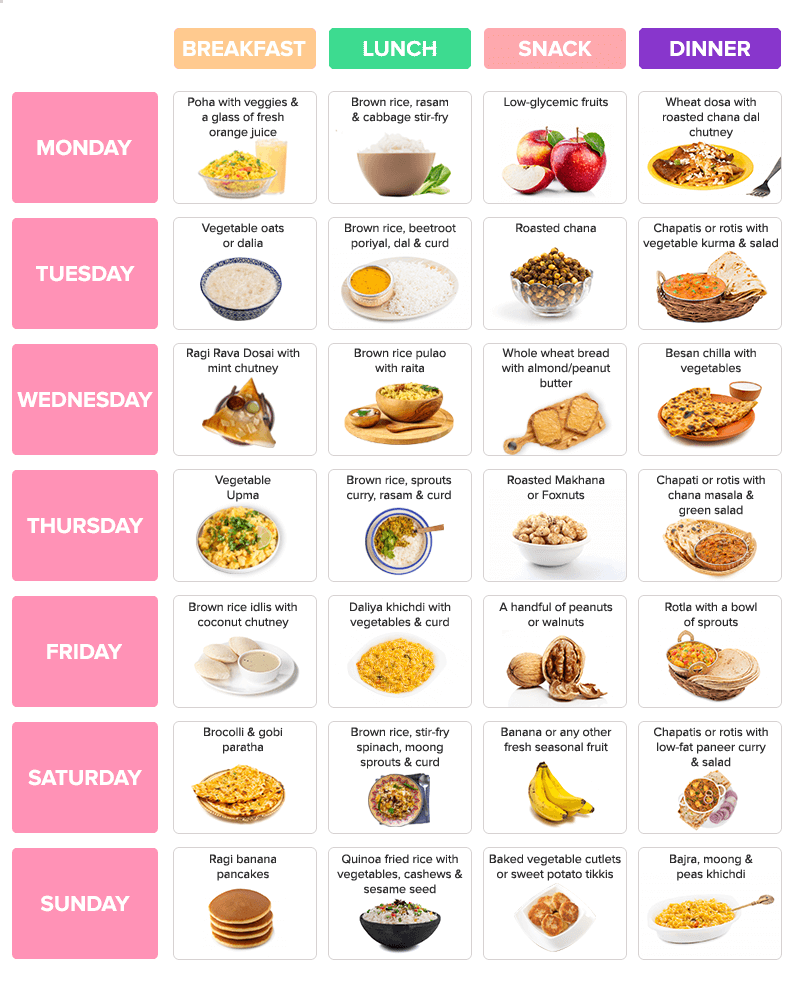Eating for PCOS
 Asian cuisine is known for its diverse flavors and nutritious ingredients. Incorporating these elements into a PCOS-friendly diet can be both tasty and beneficial for managing symptoms. Here are some ideas:
Asian cuisine is known for its diverse flavors and nutritious ingredients. Incorporating these elements into a PCOS-friendly diet can be both tasty and beneficial for managing symptoms. Here are some ideas:
- Include plenty of fresh fruits and vegetables in your meals. These provide essential vitamins, minerals, and fiber to support your overall health.
- Opt for whole grains such as brown rice, quinoa, and whole wheat bread instead of refined grains. They are rich in fiber and have a lower glycemic index, making them suitable for PCOS.
- Incorporate lean sources of protein like tofu, tempeh, fish, and skinless poultry. Protein helps to regulate blood sugar levels and promotes satiety.
- Choose healthy fats such as avocados, nuts, seeds, and olive oil. These fats are beneficial for hormone regulation and can help reduce inflammation in the body.
- Avoid sugary drinks and processed foods as they can cause blood sugar spikes and worsen PCOS symptoms.
Printable PCOS Diet Chart
 Creating a meal plan can be helpful when following a PCOS diet. It ensures that you are consuming a balanced and nutritious diet. The printable PCOS diet chart provided below can serve as a guide in planning your meals:
Creating a meal plan can be helpful when following a PCOS diet. It ensures that you are consuming a balanced and nutritious diet. The printable PCOS diet chart provided below can serve as a guide in planning your meals:
Breakfast: Start your day with a nutritious meal consisting of whole grain cereal or oats topped with fresh fruits and a dollop of Greek yogurt. You can also have an omelet with vegetables.
Lunch: For lunch, opt for a colorful salad with a variety of vegetables, grilled chicken or fish, and a side of whole grain bread or brown rice.
Snacks: Choose healthy snacks like a handful of nuts, fresh fruit, or Greek yogurt to keep your energy levels stable throughout the day.
Dinner: Have a balanced dinner with a serving of lean protein, such as tofu or fish, accompanied by steamed vegetables and a small portion of whole grains.
Remember to consult with a healthcare professional or a registered dietitian to personalize your PCOS diet plan to suit your specific needs and preferences.
Additional Tips for a PCOS-Friendly Diet
 In addition to a well-planned diet, there are some extra tips that can further support managing PCOS symptoms:
In addition to a well-planned diet, there are some extra tips that can further support managing PCOS symptoms:
- Avoid excessive consumption of dairy and opt for alternatives like almond milk or soy milk.
- Include anti-inflammatory foods such as turmeric, ginger, garlic, and green leafy vegetables in your meals.
- Stay hydrated by drinking an adequate amount of water throughout the day.
- Incorporate regular physical activity into your routine. Engage in exercises that you enjoy, such as brisk walking, yoga, or swimming.
- Manage stress levels through techniques like mindfulness, deep breathing, and meditation.
Conclusion
 Following a PCOS-friendly diet can have a positive impact on managing symptoms and improving overall well-being. The Asian-inspired PCOS diet chart provided here serves as a guide, but it’s important to remember that everyone’s nutritional needs may vary. Make sure to consult with a healthcare professional or a registered dietitian to personalize your diet plan based on your specific requirements. Remember to be consistent, stay motivated, and prioritize self-care as you embark on your PCOS management journey.
Following a PCOS-friendly diet can have a positive impact on managing symptoms and improving overall well-being. The Asian-inspired PCOS diet chart provided here serves as a guide, but it’s important to remember that everyone’s nutritional needs may vary. Make sure to consult with a healthcare professional or a registered dietitian to personalize your diet plan based on your specific requirements. Remember to be consistent, stay motivated, and prioritize self-care as you embark on your PCOS management journey.